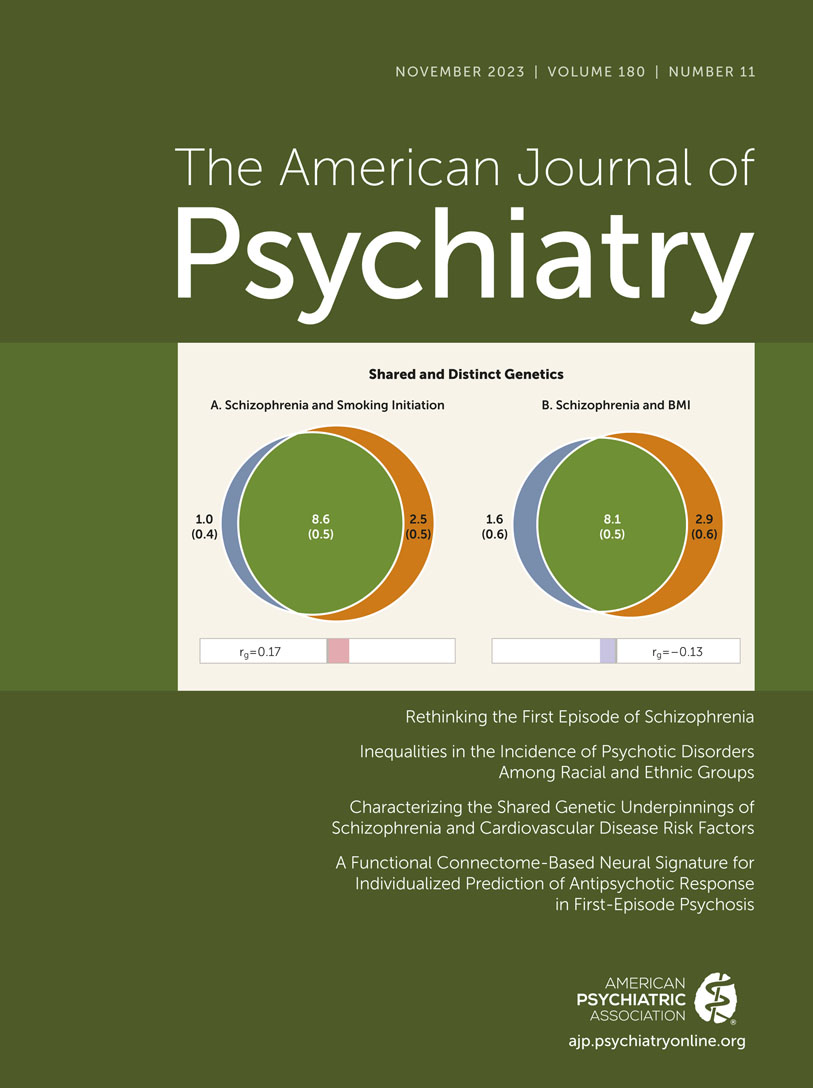A Functional Connectome-Based Neural Signature for Individualized Prediction of Antipsychotic Response in First-Episode Psychosis
Abstract
Objective:
Identification of robust biomarkers that predict individualized response to antipsychotic treatment at the early stage of psychotic disorders remains a challenge in precision psychiatry. The aim of this study was to investigate whether any functional connectome-based neural traits could serve as such a biomarker.
Methods:
In a discovery sample, 49 patients with first-episode psychosis received multi-paradigm fMRI scans at baseline and were clinically followed up for 12 weeks under antipsychotic monotherapies. Treatment response was evaluated at the individual level based on the psychosis score of the Brief Psychiatric Rating Scale. Cross-paradigm connectivity and connectome-based predictive modeling were employed to train a predictive model that uses baseline connectomic measures to predict individualized change rates of psychosis scores, with model performance evaluated as the Pearson correlations between the predicted change rates and the observed change rates, based on cross-validation. The model generalizability was further examined in an independent validation sample of 24 patients in a similar design.
Results:
The results revealed a paradigm-independent connectomic trait that significantly predicted individualized treatment outcome in both the discovery sample (predicted-versus-observed r=0.41) and the validation sample (predicted-versus-observed r=0.47, mean squared error=0.019). Features that positively predicted psychosis change rates primarily involved connections related to the cerebellar-cortical circuitry, and features that negatively predicted psychosis change rates were chiefly connections within the cortical cognitive systems.
Conclusions:
This study discovers and validates a connectome-based functional signature as a promising early predictor for individualized response to antipsychotic treatment in first-episode psychosis, thus highlighting the potential clinical value of this biomarker in precision psychiatry.
Access content
To read the fulltext, please use one of the options below to sign in or purchase access.- Personal login
- Institutional Login
- Sign in via OpenAthens
- Register for access
-
Please login/register if you wish to pair your device and check access availability.
Not a subscriber?
PsychiatryOnline subscription options offer access to the DSM-5 library, books, journals, CME, and patient resources. This all-in-one virtual library provides psychiatrists and mental health professionals with key resources for diagnosis, treatment, research, and professional development.
Need more help? PsychiatryOnline Customer Service may be reached by emailing [email protected] or by calling 800-368-5777 (in the U.S.) or 703-907-7322 (outside the U.S.).



